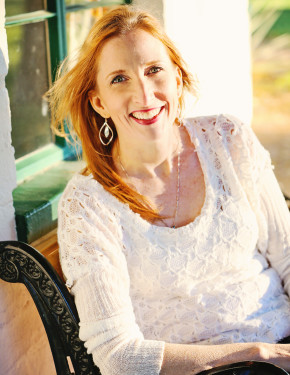So what’s the big deal about essential oils?
Essential oils have been coming into focus in today’s search for better health and better ways to take care of our families.
I have loved medicine since the days of my childhood first aid kit in a shoebox. After getting my Master’s degree in Speech-Language Pathology, I worked for many years in hospitals. And I loved it. Many people quiver at the thought of hospitals, but I enjoyed nothing more than helping the patients and families I came across there. Until I became a mom.
When our first baby was born, I found I loved nothing more than taking care of my kids. Faced with many issues (including severe eczema and food allergies) from the time our baby was one month old, I decided to look more closely at what we were eating and putting in and on our bodies.
This search started in 2001 and continues today.
So, essential oils*.
Recently, I have been researching essential oils to compliment the alternative (and traditional) approaches we have often used in treating ailments at home.
Here are a few things I have found about essential oils (and a quick science lesson review):
- People have been using plants medicinally for thousands of years. Their use dates back to ancient cultures in China, Greece, Rome, and Egypt. Essential oils are referred to 188 times in the Bible (you know ~ those three wise men). They’ve been around a long, long time.
- Essential oils are non water-based phytochemicals made up of volatile aromatic compounds (chemical compounds that occur naturally in plants and transition to gas at low temperatures – in other words, they evaporate quickly). They are highly concentrated and just a little bit goes a long way.
- Some essential oil constituents are so small in molecular size that they can quickly penetrate the tissues of the skin. This makes them excellent ingredients in personal care items intended to boost, soften, and nourish. However, they do not accumulate in the body over time. They offer their supportive properties and pass on through.
- Essential oils are lipid soluble (or fat-soluble) and are capable of penetrating cell walls, even if the cell walls have hardened due to an oxygen deficiency. Substances that are lipid soluble can pass right through the cell membrane, while those that are water-soluble have a tougher time. Essential oils can affect every cell of the body within 20 minutes and are then metabolized like other nutrients.
- Essential oils are wholly natural and cannot be patented (which means that you’ll never see an essential oil in a pharmaceutical drug).
- Enormous amounts of plants are needed to produce essential oil. Producing the purest of oils can be very costly because it may require several hundred pounds, or even several thousand pounds of plant material to extract one pound of pure essential oil.
- Remember what you’re allergic to in food, you will be allergic to in essential oils. (This is a big deal at our house).
- Fragrance oils and essential oils are NOT the same thing. If you read the words “fragrance” or “fragrance oil” or “perfume” you most likely have a synthetic product in your hands.
- Essential oils are not really oils. They would be better described as botanical extracts of various plant materials. They do not only originate from flowers, but also from herbs, trees and other various plant material.
- Essential Oils must be pure. It’s very important to use essential oils that do not include added fillers and synthetics. Even though an essential oil may be pure, if the right species or part of a plant has not been used, or if the plant has not been grown in the right environment, harvested at the right time, or distilled under the right conditions, the natural chemical makeup of the extraction will not provide as predictable and powerful a benefit.
And the information goes on and on…
So how do you find the right essential oil?
There are many essential oil companies to choose from; and there are many opinions floating around out there. After reading, researching, and trying essential oils on ourselves, our children, and in our home we have found the best fit for our family.
The U.S. Food and Drug Administration (FDA) does not “approve” dietary supplements or foods. They give approval for prescription and over the counter drugs. They do approve a list of ingredients called GRAS (generally recognized as safe) that are approved for use as food additives, preservatives, and cosmetics.
Many essential oils are listed on the GRAS list; however, there are many uses of essential oils outside of these parameters. Because there are no governmental bodies or organizations that approve or certify essential oil quality, it is important to find a company that provides pure essential oils.
My family has chosen a company committed to sourcing the best oils in the world, direct from the grower, through ethical sourcing practices. They ensure their oils are pure, unadulterated, chemical-free, and beyond organic with their stringent standards and third-party testing.
There are several safety guidelines that you should follow when using essential oils and essential oil products.
Safety Guidelines to follow when using essential oils and essential oil products:
- Be sure to use only pure, therapeutic-grade essential oils and follow all label warnings and instructions.
- If redness or irritation occurs when using essential oils topically, apply a vegetable oil – such as coconut oil or olive oil – to the affected area.
- Essential oils should not be used in the eyes, inside the ear canal, or in open wounds. In the event of accidental contact with the eye, dilute with vegetable oil NOT water.
- Do NOT consume an essential oil internally unless labeled with a Supplement Facts box with specific dietary supplement, use instructions, and warnings.
- Discontinue the use of an essential oil if you experience severe skin, stomach, or respiratory irritation or discomfort.
- When using on children, apply a very small amount of the oil to test skin or other sensitivity. Do not use oil on a child’s hand as they may transfer to their eyes or mouth.
- Consult your physician before using essential oils if you are pregnant or under a doctor’s care or have other safety questions regarding essential oils.
If you would like to learn more about essential oils and their countless uses, I encourage you to do your own research.
I hope this information is helpful in your search for better ways to care for yourself and your family. We never stop learning.
Matthew 2:10-11
When they saw the star, they were overjoyed. On coming to the house, they saw the child with his mother Mary, and they bowed down and worshiped him. Then they opened their treasures and presented him with gifts of gold, frankincense and myrrh.


